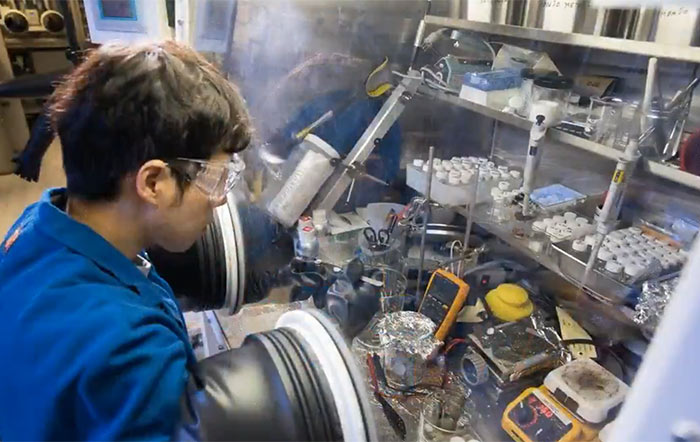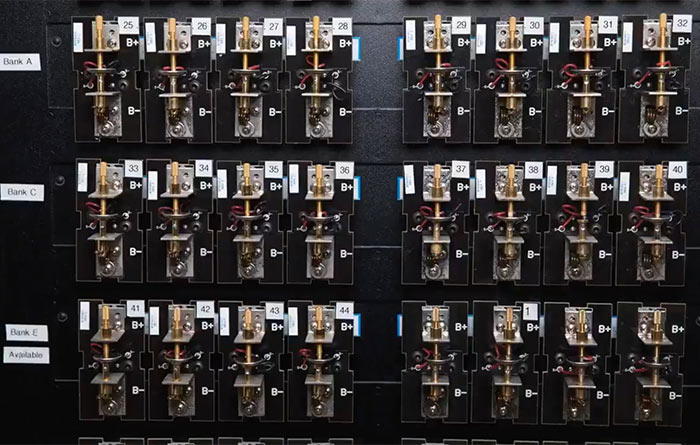IBM Research has published a blog post about an exciting new battery discovery. The new batteries have a number of key attributes that make them attractive alternatives to the best technologies that proliferate today. Probably the most important qualities of IBM's new battery are; that it eliminates the need for heavy metals in battery production, and it can be optimised to surpass state of the art lithium-ion batteries in several metrics.

Materials science innovation from IBM means that its new batteries can be formulated sustainably from materials extracted from seawater. Three materials IBM has extracted from seawater have "never before been recorded as being combined in a battery," say the firm's researchers. Furthermore, the batteries require no additional heavy metals or substances with sourcing concerns, for their construction.
The materials sourcing compares favourably with older battery chemistries which require elements like nickel and cobalt to be mined, causing environmental damage and pollution. It isn't mentioned by IBM but I wonder about the possibility of these new chemistry batteries being a by-product of the desalination plants popular in drier world regions.
Performance
An all-new battery chemistry is all very good, but unless it performs competitively or has some other important advantage it won't get adopted. In initial tests IBM says that it was shown the new battery can be optimised to beat lithium-ion batteries in the following key categories:
- Lower cost: The active cathode materials tend to cost less because they are free of cobalt, nickel, and other heavy metals. These materials are typically very resource-intensive to source, and also have raised concerns over their sustainability.
- Faster charging: Less than five minutes required to reach an 80 per cent state of charge (SOC), without compromising specific discharge capacity.
- High power density: More than 10,000W/L. (exceeding the power level that lithium-ion battery technology can achieve).
- High energy density: More than 800Wh/L, comparable to the state-of-art lithium-ion battery.
- Excellent energy efficiency: More than 90 per cent (calculated from the ratio of the energy to discharge the battery over the energy to charge the battery).
- Low flammability of electrolytes

Partnered with Mercedes
IBM seems to have a keen eye on automotive applications. It explains that many of the above bullet pointed qualities are desirable in this particular use case. IBM is already working with Mercedes on automotive, and the likes of Sidus and Central Glass on scaling up battery production. Interestingly, IBM is also using AI to accelerate development of refined / advanced battery materials that can push performance further.






